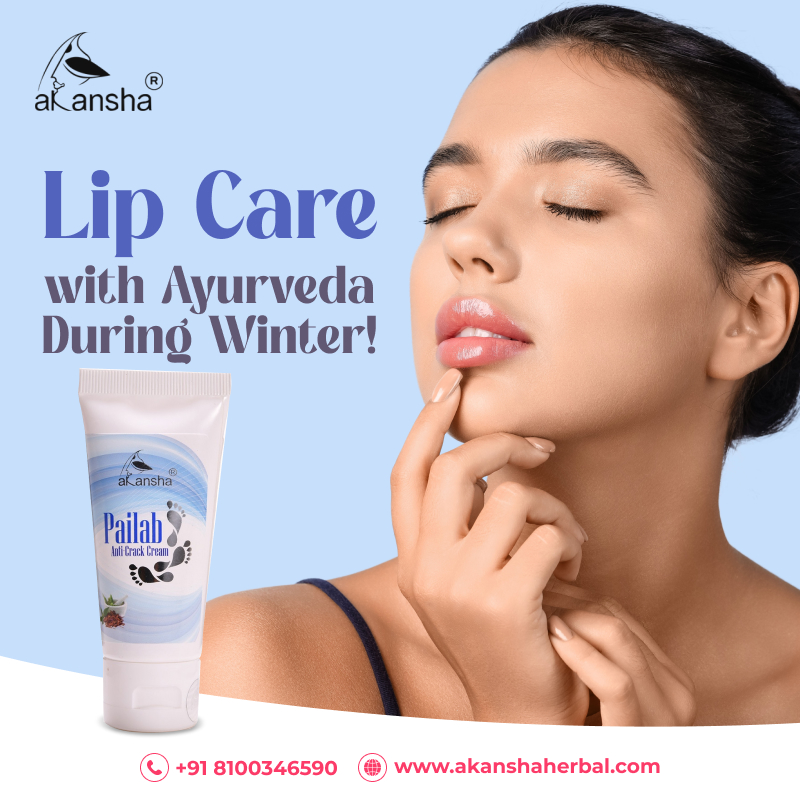Ayurvedic Lip Care: Keep Chapped Lips Away This Winter

Your lips are most affected by winter, but your skin is also challenged. Low humidity, indoor heating, and cold winds quickly remove moisture. Chapped lips make every conversation feel like a hydration compliance audit, slow down your day, and cause you to lose focus. Either use simple, natural remedies from Ayurveda or directly buy herbal beauty products that can restore softness without using excessive amounts of chemicals.
These components provide long-lasting comfort by balancing your body naturally. So let’s learn to make some remedies at home that will help keep your lips healthy throughout winter with the power of nature.
Ayurvedic Ingredients That Protect and Nourish Lips in Winter
Be ready to fight against the dryness of winter. And keep your lips plump and luscious with Ayurveda and herbal ingredients that can be easily made at home. Time to ditch the chemical products that do not make lips flaky or dry. Here are some remedies for you to try!
Ghee for Softening
Ghee is one of the most effective Ayurveda moisturisers for fragile lip skin. It contains essential fatty acids that quickly penetrate into your skin, softening rough patches and strengthening the skin barrier. Apply a thin layer before bed, and the nourishment works while sleeping to reduce morning dryness.
Ghee protects skin elasticity. This keeps lips supple even during harsh weather changes. You can also visit any herbal shop online to get a lip cream made of natural elements. Use them daily to create consistent softness without having to rely on synthetic balms.
Beetroot Juice for a Natural Tint
Ayurveda favours natural colourants that nourish at the same time as beautifying. Beetroot juice does just that. It has antioxidants to help skin repair and improve circulation around the lip area, giving natural pigmentation to add a soft pink tint. One doesn’t need those chemical-loaded lip tints anymore. Smear a little and let it stay for ten minutes. Your lips gain colour and gentle nourishment in the process. This approach strengthens long-term lip health rather than masking dryness.
You can also try PAILAB Cracked Cream for treating your lips this winter. It includes a distillation of Daruharidra, Manjistha, Jiwanti, Rakta Chandan, liquid paraffin and other natural elements of Ayurveda.
Coconut Oil for Hydration
Coconut oil provides deep hydration with minimal effort. It contains lauric acid, which retains moisture and protects the thin skin of the lips. The dryness of winter causes micro cracks, which further increases the discomfort. Coconut oil fills those deficiencies. It stabilises the skin surface and reduces water loss. Use it two or three times a day for consistent results. Coconut oil also works well as a base layer before heading out in cold weather. You can also buy herbal products online that include coconut oil. It creates a protective shield that keeps the lips hydrated for hours.
Aloe Vera Gel for Healing
Aloe vera is a pillar of Ayurvedic healing. It cools and soothes irritated lips. Cold winter winds can irritate, inflame, dry, and leave the lips sensitive and flaking. Aloe vera gel will soothe the condition. Aloe will assist your cells to regenerate and will heal any trauma more quickly. Take a small amount of the gel and apply it to clean lips and allow the gel to soak in.
The gel will smooth the lips without a heavy feeling on your lips. Aloe vera gel is also great for the summer after too much sun, even after bright winter days, to soothe the sensitive or irritated skin. If used regularly, aloe heals faster and prevents cracks from occurring.
Also read our other blog on weight loss with Ayurvedic smoothies and drinks here.
Conclusion
Winter lip care doesn’t have to be complicated or require fancy products. Ayurveda offers straightforward and effective solutions that really work. Ghee is great for softening, beetroot gives a lovely natural tint, coconut oil keeps your lips hydrated, and aloe vera helps with healing. When you combine these ingredients, you get a powerful lip care routine that fights off chapping, cracking, and dryness.
The key is consistency, be it a home remedy or if you buy herbal beauty products. If you apply it daily, your lips will feel comfortable, smooth, and protected all season long.
- SHOW US SOME LOVE ON SOCIAL MEDIA
-


- FOR ANY HELP MAY CALL US AT+91 81003 46590+91 33 2475 5839 (Monday to Saturday 11 am to 6 pm)






